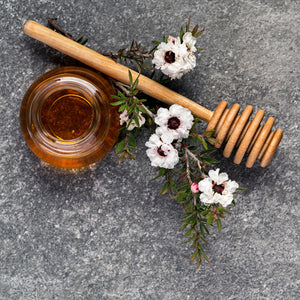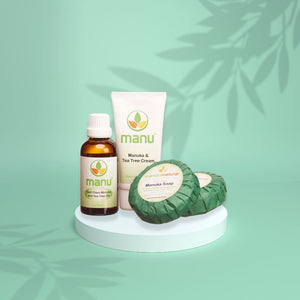
Natural Remedy for Coughing in Children
How can a parent help a child who coughs to finally get some sleep?
How to help a child who coughs?
Dear god, kid coughs sound so NASTY! Aren’t they? Every time I hear a child cough, I cringe. Even if they’re not near me, I still feel like I need to scrub down my hands every time I hear that noise.
I’m exaggerating, but I have a friend who acts like that.
Poor little ones.
A cough is a defense mechanism by which the body tries to clear the airways. Therefore, we can say that cough is not a disease but a symptom of respiratory infections, which should not be suppressed, but many times encouraged.
What are the causes of cough?
1.Inflammation of the respiratory tract by bacteria and viruses: colds, inflammation of the nasal mucosa, pharynx, sinuses, bronchitis, pneumonia
2.Allergy: allergic sneezing, asthma
3.Inhaled foreign body: peanuts, a small piece of toy – the child chokes and starts coughing convulsively
4.Air irritation: color evaporation, cigarette smoke, insecticide spray, sudden change in temperature
Although there are two basic types of cough: “dry” – irritating and “wet” – productive, there is no big difference when it comes to how parents can help their child.
The following is recommended:
How to help a child who coughs?
1) Moisturize nasal secretions with a physiological solution or purified seawater spray preparation and remove nasal secretions using a pump or aspirator.
This opens the nasal passages and allows a natural way of breathing. The flow of air through the nose also facilitates the cleaning of the nasal mucosa, which reduces the possibility of ear infections.
2) Give your child a larger amount of liquid (water, tea, natural juice, soup), which will dilute or detach the secretion from the mucous membrane and thus facilitate its expulsion.
3) Readjust the pillow. The headboard should be raised when the child is lying down. For small babies who should sleep without a pillow, it is necessary to raise the child’s headboard to 45 degrees to reduce postnasal dripping during sleep.
4) Humidifying the air in the room where the child is staying by placing a humidifier in the room (dishes with hot water or placing a towel on the radiator). This reduces the dryness of the mucous membrane and the unpleasant feeling of scratching in the throat and relieves the cough.
5) Downregulate the room temperature. The air temperature in the room should be between 18 and 20 degrees.
6) Do not smoke in the house where the child is staying!
Upper respiratory tract infections (URTI) occur most commonly in childhood. A healthy three-year-old child suffers from 6-10 colds per year.
These colds usually are mild, but the symptoms can cause a fever and make your child uncomfortable, irritable, and lethargic.
The World Health Organization report states that respiratory infections are responsible for 20% of medical consultations, 30% of days lost from work, and 75% of antibiotic prescriptions in Western Europe, the USA, and Canada.
But how do our kids end up with these respiratory infections?
Viral infections in childhood can come from anywhere. These include contact with elder siblings, attendance at daycare centers, cigarette smoke at home, and lack of breastfeeding.
So what’s the first thing you do when your kid has an awful cough?
You think about heading down to the local pharmacy to get children’s cough medicine.
But these are not always effective in reducing the cough. Sometimes they can have adverse effects, including toxicity with unintentional overdose.
More is not always better when it comes to cough medicines. So what can you do to protect your child? The best thing is to do your research!
What can you do to end your kid’s cough permanently? How to help a child who coughs?
This isn’t the first time I’ve talked about complementary and alternative medicines (CAMs). And if you did get to know me through my blog, it won’t be the last.
Unfortunately, CAMs are not taught widely in medical schools, but they are products used in addition to or as a substitute for traditional western medicine. So why am I bringing this up?
Because studies have been done on what bee medicines may be an excellent CAM to help support our children’s health and keep them breathing well throughout the school year.
Many of the studies have reached out to garlic, Echinacea, and Vitamin C, but today we will look at what research says about propolis.
A study in Romania found that treating URI (upper respiratory infections) with a propolis tincture decreases and suppresses viral activity in the upper airways. Propolis does this through its anti-viral anti-inflammatory properties known as flavones.
Other clinical results supporting its effectiveness in treating and preventing upper respiratory tract infection have been published in Germany and only from trials among adults.
But we found a study at ten primary care pediatric community clinics in Israel. In this study, 430 children aged 1-5 were randomly assigned a placebo or propolis tincture. (1)
For the first time, the results of this study demonstrated that a propolis tincture did have a significant positive effect on the rate and severity of respiratory organs infections in small children.
One more study by Crisan et al. showed a lower incidence of URTIs. These symptoms were found in a group of preschool children treated with a propolis preparation for five months.
The doubters will say that additional studies are needed to confirm these findings, but this has hopefully opened the door to safely using propolis with kids.
PROPOLIS FROM NZ HAS ITS WAY AROUND THE ANNOYING COUGH
Thanks to its composition, propolis blocks the replication of the virus and shortens the duration of the disease while reducing all the common symptoms of respiratory viral infection, including coughing.
Propolis is also intended for children with flu and cold symptoms who have a cough. You can use propolis for a dry, irritating cough to soothe it and cough with secretion to dilute it and make coughing easier.
Propolis has a protective effect on the mucous membrane of the throat. Its component stimulates the secretion of mucus that coats the cough receptors and soothes irritation.
Its mechanism may be hiding in its richness of flavonoids.
Galangin and pinocembrin may be involved in the antibacterial activity of propolis, increasing the bacterial membrane porosity. (2)
These flavonoids, found in high concentrations in propolis, plausibly contribute to the effectiveness of PP. Therefore, in the challenging attempt of overcoming microbial resistance, propolis tincture should be considered and extensively used for external and mucosal infections when conventional antibiotics are not strictly recommended.
And when they are, you should use propolis tincture because it will reduce the time use of antibiotics.
In the end …
The immune system develops gradually during childhood and fully matures around fifteen. In the first months and years of life, the ability to defend against infections with viruses, bacteria, and fungi is reduced.
By going to the nursery early, the child is exposed to these causes and can be expected to get sick on average two or three times a month. Only after the third year of attending kindergarten is the frequency of illness equal to the frequency of disease of children who do not go to kindergarten.
As a parent, your responsibility is to protect your kid from harmful drugs or antibiotics. The main reason you want the best thing for your little boy, or a girl is that tummy culture, or probiotic culture, is not well established to handle the hardness of the drugs.
So you may want to consider bee products like propolis and help a child who coughs…your child.
Manuka Natural can help you with that with both Manuka honey and propolis tincture
Above all, if coughing continues after taking honey and/or propolis, seek medical attention
ORIGINALLY PUBLISHED on blog.manukanatural.com



Leave a comment